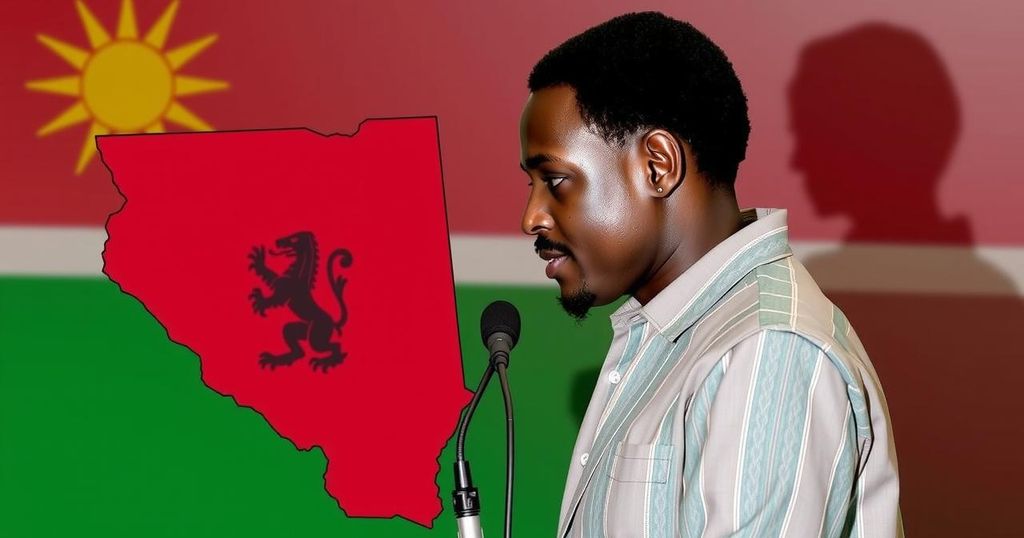Namibia Elections: Swapo’s Struggle Amid Shifting Political Dynamics in Africa

Namibia’s ruling party, Swapo, retained power with Netumbo Nandi-Ndaitwah as president but saw significant electoral losses in parliament, reflecting a regional trend among incumbents facing voter dissatisfaction. Across sub-Saharan Africa, elections in 2024 have resulted in major setbacks for established governments due to economic struggles and rising public discontent with corruption. This year marks a historic shift toward greater democratic engagement, with opposition parties gaining strength in numerous nations, suggesting meaningful changes in the political landscape.
Namibia’s ruling party, Swapo, despite its long-standing hold on power exceeding three decades, faced a reduced grip in the recent elections, reflecting a broader trend among incumbent parties across sub-Saharan Africa in 2024. Swapo’s candidate, Netumbo Nandi-Ndaitwah, secured the presidency with 57% of the vote, marking a historic moment as she becomes the first woman to lead the nation.
However, the elections were marred by allegations of logistical issues and irregularities, prompting opposition parties to contest the results vehemently. Notably puzzling is how Swapo managed an increase in the presidential vote share despite suffering significant setbacks in the parliamentary elections, where they lost 12 of their 63 seats, barely maintaining a majority.
This year has been described as an “annus horribilis” for many governing parties in sub-Saharan Africa, with nearly every election held under democratic constraints witnessing significant losses for incumbents. This downward trend is influenced by several key factors, including an economic downturn, rising public intolerance toward corruption, and the emergence of well-organized opposition parties. These dynamics are anticipated to persist into the upcoming electoral cycle in 2025.
The election results across the continent have been significant, with long-established parties like Botswana’s Democratic Party, which has ruled since 1966, suffering devastating defeats, reducing their representation from 38 seats to merely four. Similarly, in Mauritius, the governing coalition was dramatically reduced to just two parliamentary seats, while the opposition achieved a sweeping victory.
Senegal’s elections also reflected this trend, with the main opposition securing a striking victory, showcasing the shifting political landscape. Incumbents have faced increased scrutiny, and even where they retained power, such as in South Africa, they encountered significant challenges, resulting in coalition governments after losing public support.
The rise in citizen discontent regarding government performance, particularly on economic matters, has been pivotal. Escalating living costs and increased public awareness of corruption have galvanized opposition movements, leading to electoral transformations based on popular demand for accountability. Additionally, the responses to governance failures in these nations echo broader global trends, where discontent over economic conditions has similarly influenced political landscapes elsewhere, such as the recent electoral outcomes in the United Kingdom and the United States.
The evolution within African democracies also demonstrates resilience in the face of global authoritarian trends. The actions of civil societies, opposition parties, and engaged citizens have collectively ensured a demand for accountability from leaders who have faltered both economically and democratically. As a result, Africa’s political climate exhibits a more robust democratic fabric than often perceived, deserving greater recognition and study by international observers looking to understand global democratic dynamics.
Elections in Namibia have highlighted a significant trend in the political landscape of sub-Saharan Africa, where incumbent governing parties are facing unprecedented challenges. Swapo, having retained power for over 30 years, is emblematic of this shift; despite winning the presidency, it experienced substantial losses in the parliamentary vote. The context for these electoral dynamics includes widespread economic dissatisfaction, a rising demand for transparent governance, and the development of coordinated opposition efforts across the continent. The occurrence of severe electoral setbacks for established parties this year underscores a larger movement towards political engagement and accountability in African democracies.
In conclusion, Namibia’s recent elections epitomize a tumultuous period for ruling parties in Africa, where a confluence of economic distress and heightened demand for accountability has shifted power dynamics. The significant opposition victories highlight a growing resilience and determination among citizens to seek democratic governance, reflecting broader trends across the continent. These developments suggest a promising evolution in African political landscapes, warranting closer attention from global observers as democratic engagement continues to shape future electoral outcomes.
Original Source: www.bbc.co.uk








